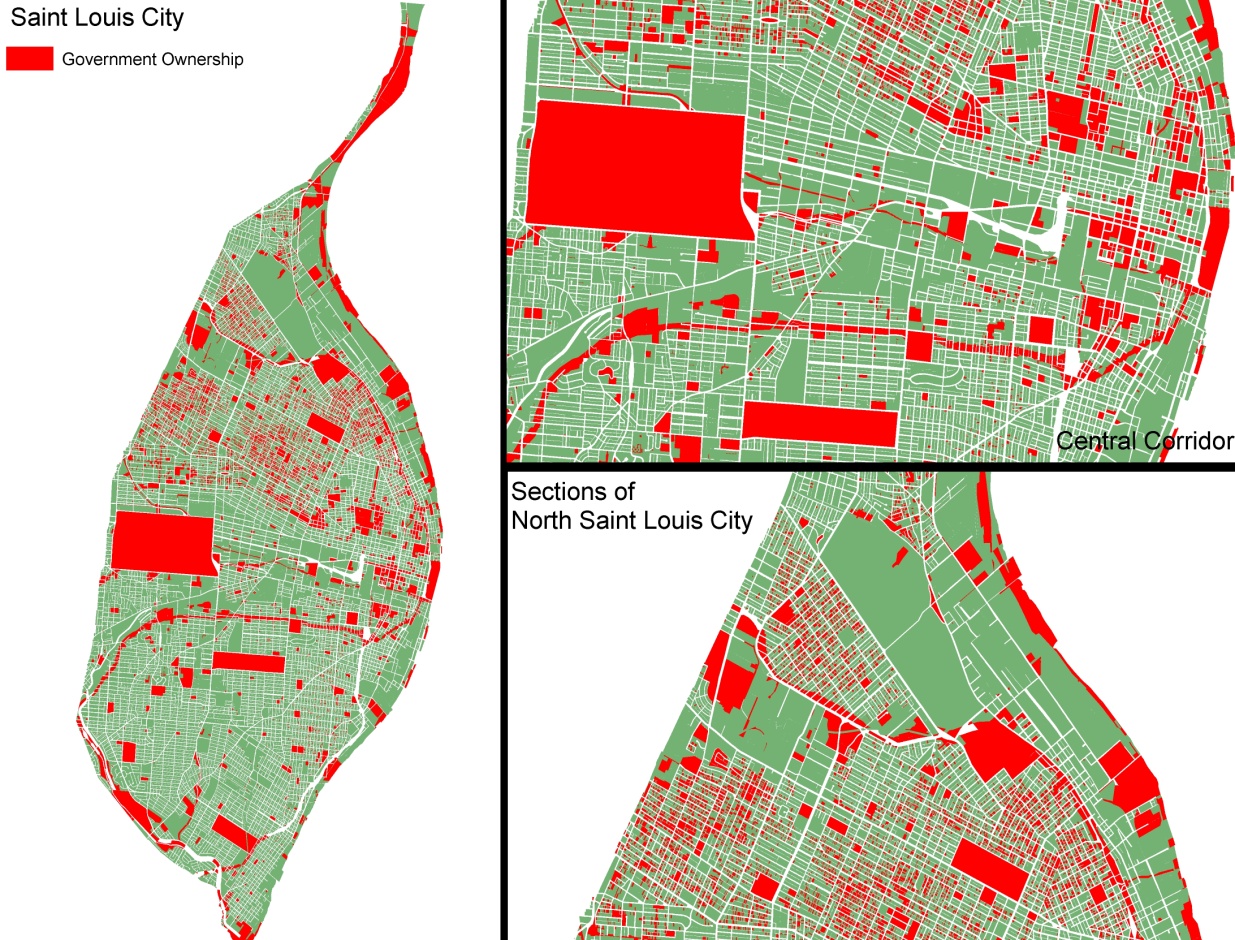For cities across the country, property taxes make up a large—sometimes the largest—source of tax revenue. For instance, more than 90% of Portland’s revenue comes from property taxes. Many cities collect less, such as Denver, where property taxes make up only 25% of general revenue. But in Saint Louis City, property taxes are an abnormally small portion of city revenue. In fact, less than 15% of the city’s general revenue comes from property taxes. This makes the city reliant on earnings taxes, which make up more than 30% of the city’s tax revenue, despite the negative effects that the earnings tax has on the city’s growth.
The problem with the city’s property tax collections is not the rate (around $7.5850 per $100 assessed value), but the fact that most of Saint Louis City is not actually paying the posted property tax rate. As this and future blog posts will detail, most of the city’s land area and much of the city’s properties either enjoy special property tax breaks or are exempt from property tax altogether.
One type of entity that pays little or no property tax is government. This includes city, county, state, and federal government, but does not end there. In Saint Louis City, many properties are owned by other quasi-governmental bodies, including: the Bi-State Development Agency, the Metropolitan St. Louis Sewer District, Great River Greenways, the Land Reutilization Authority (LRA), the Saint Louis Convention and Visitors Commission (CVC), the Saint Louis Housing Authority, the St Louis Municipal Finance Corporation, and others. Altogether, government-owned properties make up almost 30% of all properties (by area) in the city, as the map below illustrates:

Large city parks are one reason governments own so much of Saint Louis City. But even if we take parks out of the equation, governments still own more than 23% of the city by land area and 12% of land by value. For instance, the city’s land bank, the LRA, owns more than 11,000 parcels of land, including the land on which Busch Stadium stands. Busch Stadium’s public connection is not an outlier. Many large entertainment venues in the city, including the Scott Trade Center and the Edward Jones Dome, are on public land. Different government organizations own housing complexes, office buildings, theatres, parking lots, and wharfs. Setting aside the question of whether or not all of this government ownership is justified, little if any property tax money can come from these parcels.
Check back for our next post on this issue, which will explore the prevalence of tax-exempt properties in Saint Louis City.





